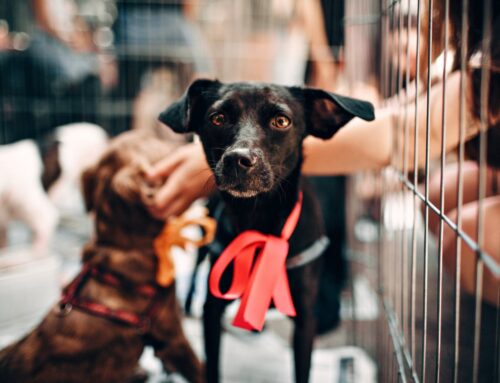Pets bring joy, comfort, and companionship to our lives, but they also come with pet ownership responsibilities. Whether you’re a first-time pet owner or a seasoned one, understanding what each type of pet needs is essential for their well-being and happiness. This comprehensive guide covers the responsibilities for every pet type, including dogs, cats, small mammals, reptiles, birds, and even more exotic animals. Let’s dive into the different pets and their unique care pet ownership requirements.
Dogs: Loyal Companions
Pet Ownership Responsibilities:
Dogs are known for their loyalty and love. Owning a dog requires a significant time commitment and responsibility. Here are the primary tasks involved in dog ownership:
Exercise: Dogs need regular exercise to stay healthy and happy. Depending on the breed, some dogs may require up to two hours of exercise daily. Regular walks, playtime, or even trips to the dog park are essential for your dog’s physical and mental stimulation.
Feeding: Dogs require a balanced diet tailored to their age, size, and breed. Puppies, adult dogs, and senior dogs have different nutritional needs. You should feed your dog high-quality food and follow proper portion control to prevent obesity and ensure good health.
Grooming: Some dogs have thick coats that require regular brushing to prevent matting and shedding. Dogs also need occasional baths, nail trimming, and dental care.
Training: Proper training is crucial for a dog’s behavior and safety. Basic commands like sit, stay, and come are essential, but dogs also need to be socialized with other animals and people.
Vet Care: Routine veterinary visits are necessary for vaccinations, parasite prevention (like flea and tick control), and general health check-ups. Regular grooming and hygiene maintenance are also part of your dog’s health regime.
Additional Considerations:
Time Commitment: Dogs need attention, love, and companionship. Leaving them alone for long periods can cause stress and behavioral issues.
Expenses: Dogs can be costly due to food, grooming, medical care, and training.
Cats: Independent Yet Loving
Pet Ownership Responsibilities:
Cats are known for their independence, but they still require specific care to remain healthy and happy. While they may not need as much attention as dogs, they have their own unique needs:
Feeding: Cats need high-quality food that suits their age, weight, and health needs. While they are generally self-sufficient with food, you should establish a feeding routine and ensure they always have fresh water.
Litter Box Maintenance: Cats need a clean litter box to do their business. Regular scooping, at least once a day, and a weekly cleaning of the entire box are essential.
Play and Stimulation: Even though cats are more independent, they still need mental stimulation and playtime. Interactive toys and scratching posts help keep them entertained and prevent destructive behavior.
Grooming: Regular brushing is essential, especially for long-haired breeds. Grooming also helps reduce shedding and hairballs.
Vet Care: Like dogs, cats need regular veterinary check-ups, vaccinations, and parasite prevention. Spaying or neutering is essential for preventing unwanted litters.
Additional Considerations:
Litter Box Placement: Ensure your cat’s litter box is in a quiet, accessible location. Cats are particular about their bathroom habits.
Time Commitment: Cats may not need as much direct attention as dogs, but they still enjoy companionship, and ignoring them for too long can lead to anxiety and behavioral issues.
Small Mammals: Guinea Pigs, Hamsters, and Rabbits
Pet Ownership Responsibilities:
Small mammals like guinea pigs, hamsters, and rabbits make wonderful pets, especially for families or individuals with limited space. Each type of small mammal has its own care needs:
Cage Maintenance: Small mammals need clean cages that are appropriately sized for their breed. You should clean their living environment regularly and provide bedding for comfort and hygiene.
Feeding: Guinea pigs, hamsters, and rabbits need species-appropriate food. Guinea pigs, for example, need fresh hay and vegetables, while hamsters typically eat pellets and occasional treats. Rabbits thrive on hay, leafy greens, and some pellets.
Exercise and Enrichment: These pets need daily exercise. Hamsters enjoy running on a wheel, while rabbits need space to hop around and explore. Guinea pigs need time outside their cages for roaming and socialization.
Grooming: Some small mammals require regular grooming, especially those with long hair. Brushing is necessary to prevent matting and hairballs.
Vet Care: Small mammals may require vet care for illnesses, injuries, or regular check-ups. Rabbits, for example, need regular dental check-ups due to their continuously growing teeth.
Additional Considerations:
Space Requirements: Even small mammals need ample space to move around and explore. Ensure you provide enough room for your pet to stay active and comfortable.
Time Commitment: Small mammals may not require as much direct attention as dogs and cats, but they still need daily care and interaction.
Reptiles: Snakes, Lizards, and Turtles
Pet Ownership Responsibilities:
Reptiles make unique and fascinating pets, but they require specialized care that differs greatly from mammals. Here are the responsibilities of reptile owners:
Habitat Setup: Reptiles need a controlled environment, such as a terrarium or vivarium, with the appropriate temperature, humidity, and lighting. For example, snakes need heat lamps, while turtles need UVB lighting for proper bone development.
Feeding: Reptiles have different dietary needs. Some, like snakes, may require a diet of live or frozen rodents, while others, like turtles, need vegetables and pellets. You’ll need to research the specific dietary requirements of your pet.
Handling and Socialization: Reptiles are not always as social as mammals, but they still need to be handled regularly to remain comfortable with humans. Gentle and frequent interaction can help build trust.
Health Monitoring: Reptiles are prone to specific health conditions such as metabolic bone disease, so it’s important to monitor their health and ensure they have the correct diet and environment.
Vet Care: Reptiles need a vet who specializes in exotic animals. Regular check-ups are important to catch any potential issues early.
Additional Considerations:
Time Commitment: Reptiles generally don’t require as much daily attention as dogs or cats, but they do need specialized care that can be time-consuming.
Cost: Setting up a proper habitat for a reptile can be expensive, especially when it comes to heating, lighting, and humidity control.
Birds: Parrots, Canaries, and Budgies
Pet Ownership Responsibilities:
Birds are intelligent and social creatures, but they also require a specific environment and daily care:
Cage Maintenance: Birds need a spacious cage with appropriate perches and toys to keep them occupied. Their cages should be cleaned regularly to prevent the buildup of waste and bacteria.
Feeding: Birds require a balanced diet of seeds, fruits, and vegetables. It’s important to provide a variety of foods to ensure your bird gets the right nutrients.
Socialization and Enrichment: Birds are highly social and need regular interaction. Parrots, in particular, enjoy talking, playing, and being with their owners. Providing toys and allowing time outside the cage is crucial for their mental stimulation.
Grooming: Birds may need occasional nail trimming, beak care, and feather maintenance. Some birds also need regular baths.
Vet Care: Birds should be examined by an avian vet to ensure they are free from diseases like psittacosis or feather plucking.
Additional Considerations:
Time Commitment: Birds need plenty of attention and social interaction. Parrots, for instance, can develop behavioral problems if they don’t receive enough stimulation.
Noise: Birds, especially parrots, can be loud. Be prepared for noise if you decide to adopt one.
Exotic Pets: Fish, Ferrets, and More
Pet Ownership Responsibilities:
Exotic pets like fish, ferrets, and hedgehogs require specialized care that varies by species:
Fish: Setting up a tank for fish requires careful attention to water quality, temperature, and filtration. Regular tank maintenance and water changes are necessary to ensure a healthy environment for the fish.
Ferrets: Ferrets are social and playful animals that need a lot of attention. They require daily interaction, as well as a clean cage and appropriate toys.
Hedgehogs: Hedgehogs are solitary and nocturnal creatures. They require a clean, quiet space, along with a diet of insects, vegetables, and fruits. Regular handling is necessary for socialization.
Additional Considerations:
Time Commitment: Exotic pets may require unique care routines that can take up time, especially when it comes to maintaining their habitat or providing the right diet.
Specialized Knowledge: Exotic pets often have very specific care needs, so be prepared to do thorough research before adopting one.
Conclusion
Each pet type requires its own set of pet ownership responsibilities. Whether you’re caring for a dog, cat, small mammal, reptile, bird, or exotic animal, you need to commit to their care. From feeding and grooming to training and socialization, pet ownership is a rewarding yet demanding responsibility. By understanding the specific needs of each pet and investing the time and resources to meet those needs, you can ensure that both you and your pet enjoy a happy, healthy life together.
No matter what kind of pet you choose, remember that they all deserve love, attention, and respect. With the right commitment, you’ll enjoy a fulfilling and rewarding relationship with your furry (or scaly) companion!




